All screenings are held at the Auditorium at Northeastern Illinois University (Building E, 3701 W. Bryn Mawr Ave., Chicago, IL 60625).
General Admission: $5 • NEIU Students: $2
Programmed and Projected by Julian Antos, Becca Hall, and Kyle Westphal. Assistant: Julia Reinitz
Wednesday, September 2nd @ 7:00 PM
MARNIE
Directed by Alfred Hitchcock • 1964
How did Marnie (Tippi Hedren), the frigid 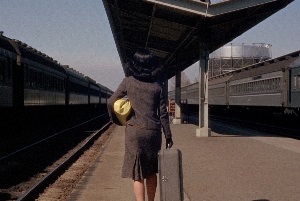 typist, develop a compulsion for stealing? Why does her boss (Sean Connery) blackmail her into marriage? What traumas lie inside Marnie’s childhood home on the fringes of Baltimore? A psychoanalytic case history structured like a conjugal detective adventure and decorously promoted as “Hitchcock’s Suspenseful Sex Mystery,” Marnie literalizes the return of the repressed. Initially dismissed as a technically incompetent relic brought down from the attic of once-fashionable high Freudianism, Marnie was quickly rehabilitated by auteurists, feminists, and Hitchcock fanciers as a conflicted confession from the inner sanctum of the patriarchy. (Significantly, Hitchcock commissioned the final script from neophyte Jay Presson Allen after his usual collaborators proved unwilling and unable to deliver a scene depicting marital rape, making Marnie that rare Hollywood examination of sexual conquest that actually happens to be written by a woman.) Seen in an original IB Technicolor print, it’s also an aesthetic wonder—a precisely calibrated cinema machine that periodically breaks down in a hysterical miasma of red light. (KW)
typist, develop a compulsion for stealing? Why does her boss (Sean Connery) blackmail her into marriage? What traumas lie inside Marnie’s childhood home on the fringes of Baltimore? A psychoanalytic case history structured like a conjugal detective adventure and decorously promoted as “Hitchcock’s Suspenseful Sex Mystery,” Marnie literalizes the return of the repressed. Initially dismissed as a technically incompetent relic brought down from the attic of once-fashionable high Freudianism, Marnie was quickly rehabilitated by auteurists, feminists, and Hitchcock fanciers as a conflicted confession from the inner sanctum of the patriarchy. (Significantly, Hitchcock commissioned the final script from neophyte Jay Presson Allen after his usual collaborators proved unwilling and unable to deliver a scene depicting marital rape, making Marnie that rare Hollywood examination of sexual conquest that actually happens to be written by a woman.) Seen in an original IB Technicolor print, it’s also an aesthetic wonder—a precisely calibrated cinema machine that periodically breaks down in a hysterical miasma of red light. (KW)
130 min • Universal Pictures • 35mm IB Technicolor from private collections
Wednesday, September 9th @ 7:00 PM
WESTWARD THE WOMEN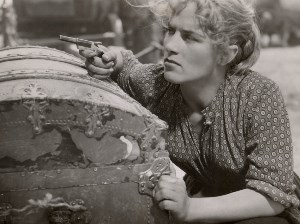
Directed by William A. Wellman • 1951
This atypical Western starts out with a typical premise, in which the founder of a California town in need of marriageable women hires tough-guy trail guide Buck Wyatt (Robert Taylor) to bring a party of women (Denise Darcel, Hope Emerson, and Julie Bishop among them) from Chicago to California. The film’s 1851 equivalent of a mail-order bride scheme becomes a vehicle for gathering a variety of female characters together to face the struggles of overland travel. Many of the men are quickly dispatched in order to focus on the group dynamics of the women themselves, as a disparate bunch of largely incapable women transforms into a strong and capable sisterhood of pioneers. Among the last films from M-G-M producer Dore Schary’s short-lived socially conscious genre slate (Border Incident, Devil’s Doorway), Westward the Women gives its female characters enough individuality and autonomy to make their migration truly feel like a choice: these women travel two thousand miles because they want husbands, not because the men they are marrying want wives. (JR)
116 min • Metro-Goldwyn-Mayer • 35mm from Wisconsin Center for Film & Theater Research
Wednesday, September 16th @ 7:00 PM
SO THIS IS PARIS
Directed by Ernst Lubitsch • 1926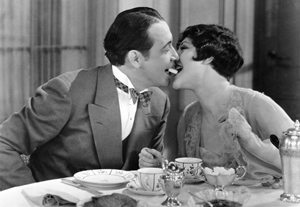
For a filmmaker who often plumbed the monotony of monogamy and celebrated the upside of infidelity, Ernst Lubitsch was himself remarkably faithful to formula. So This Is Paris shared cast, crew, and effortless insouciance with Lubitsch’s previous romantic farces The Marriage Circle and Lady Windermere’s Fan, and emerged all the more magical for its mastery of routine. Monte Blue and Patsy Ruth Miller star as a Parisian couple whose marriage is threatened by the very public exertions of their dancing neighbors Lilyan Tashman and André Beranger. But which is the greater threat: Blue’s steamy, secret past with Tashman, or Miller’s weakness in the face of Beranger’s superlative seduction technique? For an ostensibly simple comedy, So This Is Paris is packed with superfluous detail and gobsmacking production design. Not for nothing did critic J. Hoberman describe it as “a good-natured send-up of sheikhs, jazz babies and would-be wife swappers, replete with binge drinking, outrageous Freudian symbolism and a writhing kaleidoscope that must be the ultimate Charleston scene.” (KW)
68 min • Warner Bros. • 35mm from the Library of Congress
Co-presented by the Silent Film Society of Chicago with live organ accompaniment by Jay Warren
Wednesday, September 30 @ 7:00 PM
OUT OF THE BLUE
Directed by Dennis Hopper • 1980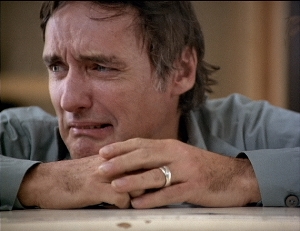
Dennis Hopper, the prodigal son of American cinema, returns to the director’s chair for the first time since his reviled 1971 masterwork The Last Movie. Initially signed only to play doting daddy and perennial fuckup Don Barnes, Hopper took over the production when the original director was fired after two weeks. Days of Heaven alumna Linda Manz stars as Hopper’s daughter Cebe—as in CB radio, the platform she uses to exhort her distant buddies to mourn Elvis and kill hippies. Drifting from nightclubs to motels like the avenging angel of an R-rated after-school special, Manz delivers a performance for the ages. (Asked how much of her own life informed Cebe, Manz answered ominously, “A hundred percent! In all my movies, I’m just being myself.”) Though acclaimed by Roger Ebert and Vincent Canby, Out of the Blue went undistributed in America until 1983, and then only in a handful of theaters. Contra Hopper, Neil Young may not be the voice of the blank generation, but don’t let the soundtrack fool you: Out of the Blue is one of the essential punk films. (KW)
94 min • Discovery Films • 35mm from Discovery Productions, Inc.
Tuesday, October 13 @ 7:00 PM
ILLUSION TRAVELS BY STREETCAR
Directed by Luis Buñuel • 1954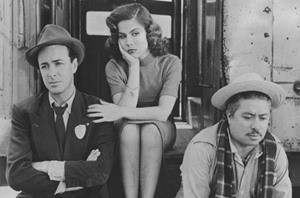
On the night before it’s set to be sent to the scrapyard, a conductor (Carlos Navarro) and fare collector (Fernando Soto) take streetcar number 133 on one last joyride through Mexico City, giving free rides to anyone who will take them. (At one point, 133 is filled with butchers – and their enormous slabs of meat – who just finished working the late shift). Our two heros wake up in the back of the car hungover, and race to return it before their supervisor notices. Shot quickly on location in three weeks, Illusion Travels by Streetcar has the creaky energy and humor of an early talkie. A plea against the reckless and incompetent destruction of things which are perfectly useful by bean counters who are perfectly useless, Illusion Travels by Streetcar is also an unsentimental, humanist ode to machines and the “little” people who care for them, hence an NWCFS natural. (JA)
In Spanish with English subtitles
82 min • Clasa Films Mundiales • 35mm from Kino Lorber
Introduced by Paul A Schroeder Rodriguez, Professor of Spanish, NEIU
Saturday, October 17 @ 11:00 AM
HOME MOVIE DAY 2015
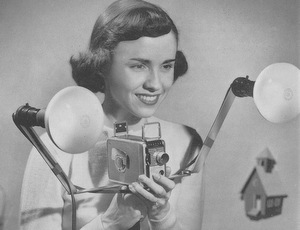 Presented by the Northwest Chicago Film Society and Chicago Film Archives.
Presented by the Northwest Chicago Film Society and Chicago Film Archives.
Chicago History Museum, 1601 N. Clark Street • Free Admission
Go down to the basement and dig out your Super 8 memories of that interminable trip to Idaho or that embarrassing 16mm footage of your mother’s rockin’ bat mitzvah and bring them to the Chicago History Museum on Saturday, October 17 for this year’s edition of Home Movie Day. Jointly presented for the fifth year in a row by Chicago Film Archives and the Northwest Chicago Film Society, Home Movie Day offers Chicagoans the opportunity to gather together and share their celluloid histories. Home movies provide invaluable records of our families and our communities: they document vanished storefronts, questionable fashions, adorable pets, long-departed loved ones, and neighborhoods-in-transition. Many Chicagoans still possess these old reels, passed down from generation to generation, but lack the projection equipment to view them properly and safely. That’s where Home Movie Day comes in: you bring the films, and we inspect them, project them, and offer tips on storage, preservation, and video transfer–all free of charge. And best of all, you get to watch them with an enthusiastic audience, equally hungry for local history.
Wednesday, October 21 @ 7:00 PM
A NEW LEAF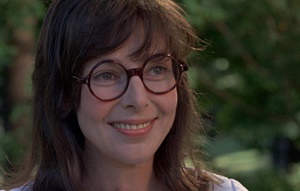
Directed by Elaine May • 1971
Meet Henry Graham and Henrietta Lowell, the love couple for the seventies. Walter Matthau is Henry, the smug playboy who can neither fathom nor accept the idea that he has overdrawn his trust fund. Elaine May plays Henrietta, the fabulously wealthy heiress and klutzy botany professor whose love might yet redeem Henry—if he doesn’t murder her for her money first. The first woman to write, direct, and star in her own Hollywood feature, May apparently decided to appear before the camera in A New Leaf to forestall the possibility of an unpalatable actress being cast instead. May’s extraordinarily precise performance is a full-tilt behavioral study of learned haplessness and a gawky love letter to Jewish American womanhood. She edited A New Leaf for a year and eventually turned in a three-hour rough cut, only to have Paramount take away the film and release it in its present form. May unsuccessfully sued the studio to have her name removed from the credits, but even this compromised version is a magnificent, unruly treasure. (KW)
102 min • Paramount Pictures • 35mm from Paramount
Wednesday, October 28 @ 7:00 PM
WITCHCRAFT THROUGH THE AGES
Directed by Benjamin Christensen • 1922
Adapted by Antony Balch • 1968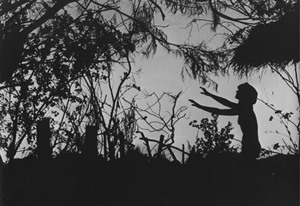
Benjamin Christensen’s 1922 film Häxan is one of the more unclassifiable artifacts of the silent era—an illustrated art history slide show on the development of Satanism, mixed liberally with kinky reenactments of mystic rites. (If you thought Christensen brought anything less than total commitment to the material, you should know that the director reserved the plum role of the Devil for himself.) More than forty years after its initial release, Häxan was picked up by British distributor and beatnik gadfly Antony Balch, who recut the film and brought its droll grotesqueries up to date with the swinging sixties. Outfitted with narration from William S. Burroughs and a new jazz score from Daniel Humair (featuring Jean-Luc Ponty on violin!), Balch’s Witchcraft Through the Ages scandalized the small but vocal contingent of Scandinavian silent cinema purists. In the Village Voice Jonas Mekas offered a guarded recommendation for the “bastardized ‘English version’ prepared by a well meaning but obviously stupid young man, Antony Balch … Why did Burroughs participate in this barbarous act? Suppose we begin to mess with his novels. I wonder how he’d feel about it …” (KW)
76 min • Svensk Filmindustri • 35mm from Janus Films
Wednesday, November 4 – 7:00 PM
COOLEY HIGH
Directed by Michael Schultz • 1975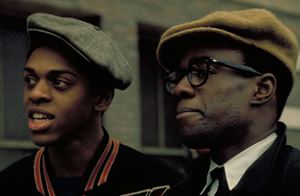
Shot entirely on location on the Near North Side of Chicago for $675,000, Cooley High was marketed by American International Pictures as the black American Graffiti, though the Los Angeles Times’ s comparison to Mean Streets is a little closer to the film’s graceful balance of violence and comedy. Chicago native and Good Times creator Eric Monte based the script on his own experiences at the now-demolished Cooley Vocational High School during the mid-’60s, following the last days of high school for Preach (Glynn Turman) and Cochise (Lawrence Hilton-Jacobs). The majority of the nonprofessional supporting cast were culled from the Cabrini Green area. Many still remember a white stretch limo pulling up to their street corner and conspicuously offering them jobs in a movie. Wearing Chicago on its sleeve, Cooley High made waves across the country, and was recognized by the City Council of Los Angeles for depicting “the awkwardness, the exuberance, aspirations, despair, and culture of urban youth trying to escape the stifling confines of the inner-city.” (JA)
107 min • American International Pictures • 35mm from Park Circus
Introduced by Sergio Mims, film journalist, co-founder and co-programmer of the annual Black Harvest Film Festival co-founder and contributing writer for Shadow and Act on Indiewire.com
 Cooley High is part of Chicago Artists Month 2015, the 20th annual celebration of Chicago’s vibrant art community presented by the Chicago Department of Cultural Affairs and Special Events. For more information, visit www.chicagoartistsmonth.org.
Cooley High is part of Chicago Artists Month 2015, the 20th annual celebration of Chicago’s vibrant art community presented by the Chicago Department of Cultural Affairs and Special Events. For more information, visit www.chicagoartistsmonth.org.
Wednesday, November 25 @ 7:00 PM
RUGGLES OF RED GAP
Directed by Leo McCarey • 1935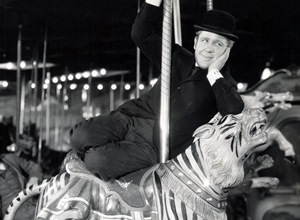
Butler Marmaduke Ruggles (Charles Laughton) is an Englishman in Red Gap, Washington when his master loses him in a gentleman’s bet to American millionaires Effie and Egbert Floud (Mary Boland and Charlie Ruggles, no relation). A capsule of British-American relations in the same vein as Powell & Pressburger’s A Canterbury Tale and A Matter of Life and Death, Ruggles of Red Gap is genuinely, whimsically patriotic while ribbing slack-jawed Americans for the film’s duration. Laughton orchestrated the production of his first comedy, choosing the source material (Harry Leon Wilson’s 1915 novel, filmed previously in 1918 and 1923, and one last time in 1950 as Fancy Pants with Bob Hope) and Leo McCarey as the director, and often cited the performance as his favorite role. The climax, Laughton’s recitation of the Gettysburg Address, is one of the most fluid and engaging sequences in all of cinema, yet amidst the intoxicating madness of Ruggles of Red Gap, it’s only a footnote. With Zasu Pitts and Roland Young. (JA)
91 min • Paramount Pictures • 35mm from Universal
Wednesday, December 9 @ 7:00 PM
TIGER SHARK
Directed by Howard Hawks • 1932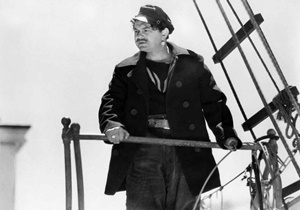
Edward G. Robinson may play a tuna fisherman (the best in the Pacific Ocean, he reminds us nine or ten times), but the only thing he manages to nibble around here is the scenery. Robinson’s Mike Mascarenas is a singular force in San Diego’s Portuguese immigrant community, strutting around like a manicured, semi-literate Captain Hook with a gypsy earring, or perhaps a burlesque Ahab. A hard-headed man’s man who values loyalty above all, Mascarenas enters uncharted waters as a clandestine romance brews between his wife (Zita Johann) and his best friend (Richard Arlen). Celebrated today for its viscerally unsafe fishing sequences and its quintessentially Hawksian maleness, Tiger Shark was initially embraced by its studio as a peerless template for exploring the terror of working class life; Warner Bros. unofficially repurposed the storyline twice within the next decade, translating the love triangle to the world of circus wranglers (Bengal Tiger) and electrical linemen (Manpower). (KW)
77 min • Warner Bros. • 35mm from the Library of Congress
Tuesday, December 22 @ 7:00 PM
SUSAN SLEPT HERE
Directed by Frank Tashlin • 1954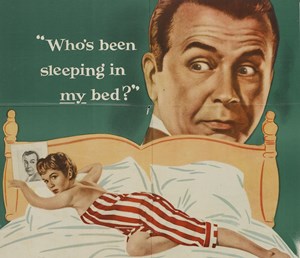
In the only movie narrated by an Oscar statuette, we meet screenwriter Mark Christopher (Dick Powell) on Christmas Eve, when his dinner plans are spoiled by the arrival of two cops at his door with Susan (Debbie Reynolds), a feisty seventeen-year-old girl who was picked up for hitting a man over the head with a beer bottle. The cops claim they brought her to Mr. Christopher to give him a script idea and give the girl a chance to stay out of jail on Christmas, but it’s really a meet cute for the screwball romance between Susan and Mr. Christopher that drives the film. This premise seems gauged to infuriate Hays Code censors: the film never lets the viewer forget that this is a story of love between a minor and a man eighteen years her senior. Made early in Tashlin’s career, Susan Slept Here relies more on verbal jokes than the kind of visual gag work that characterizes many of his later movies, but it does include an extended dream sequence in which several principal characters don glittery outfits and perform some cracked dance numbers more reminiscent of The Great Gabbo and Inauguration of the Pleasure Dome than Singin’ in the Rain. (JR)
98 min • RKO Radio Pictures • 35mm IB Technicolor from private collections
